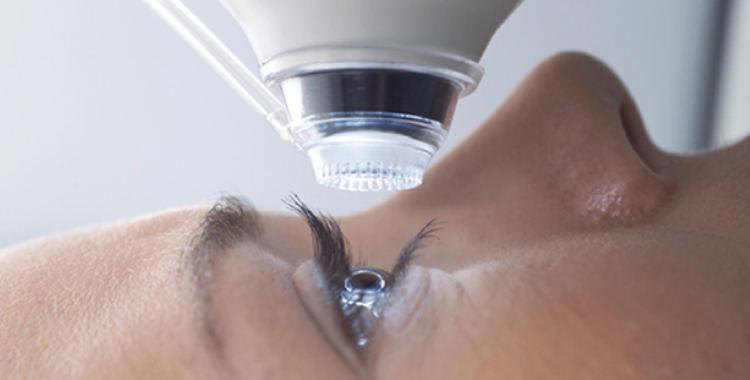Lasik for patient's education
Author: Dr. Nada AlYousifAbout Author: Ophthalmology Consultant
Category: Surgery
LASIK EYE SURGERY
LASIK, which stands for laser in-situ keratomileusis, is a popular surgery used to correct vision in people who are nearsighted, farsighted or astigmatism.
All laser vision correction surgeries work by reshaping the cornea, the clear front part of the eye, so that light traveling through it is properly focused onto the retina located in the back of the eye. LASIK is one of a number of different surgical techniques used to reshape the cornea.
What are the advantages of lasik?
LASIK has many benefits, including:
• It works! It corrects vision. Around 96% of patients will have their desired vision after LASIK. An enhancement can further increase this number.
• LASIK is associated with very little pain due to the numbing drops that are used.
• Vision is corrected nearly immediately or by the day after LASIK.
• No bandages or stitches are required after LASIK.
• Adjustments can be made years after LASIK to further correct vision if vision changes while you age.
• After having LASIK, most patients have a dramatic reduction in eyeglass or contact lens dependence and many patients no longer need them at all.
What are the potential side effects of lasik?
Some patients experience discomfort in the first 24 to 48 hours after LASIK eye surgery. Other side effects, although rare, may include:
• Glare
• Seeing halos around images
• Difficulty driving at night
• Fluctuating vision
• Dry eyes
How should I prepare for lasik eye surgery?
Before LASIK eye surgery your medical history will be evaluated and your eyes will be fully examined. Likely initial tests include measuring corneal thickness, refraction, corneal mapping, air pressure, and pupil dilation.
If you wear rigid gas permeable contact lenses, you should not wear them for at least three weeks before your evaluation. Other types of contact lenses shouldn't be worn for at least three days prior to the evaluation. Be sure to bring your eyeglasses to the surgeon so your prescription can be reviewed.
On the day of your surgery, eat a light meal before going to the doctor and take all of your prescribed medications. Do not wear eye makeup or have any bulky accessories in your hair that will interfere with positioning your head under the laser. If you are not feeling well that morning, call the doctor's office to determine whether the procedure needs to be postponed.
What happens during lasik eye surgery?
During LASIK eye surgery, an instrument called a microkeratome or femtosecond laser is used to create a thin flap in the cornea. The cornea is then peeled back and the underlying corneal tissue is reshaped using another laser. After the cornea is reshaped so that it can properly focus light onto the retina, the cornea flap is put back in place and the surgery is complete.
LASIK is performed while the patient is under local anesthesia in the form of eye drops and usually takes about 10 minutes to complete. Plan to have someone drive you home after surgery.
What should I expect after lasik eye surgery?
Your eyes will temporarily be dry even though they do not feel that way. Your doctor will give you prescription eye drops to prevent infection and inflammation and eyedrops to keep your eyes moist. These drops may cause a momentary slight burn or blurring of your vision when you use them. Do not use any eye drops not approved by your eye doctor.
Healing after LASIK eye surgery usually occurs very rapidly. Vision may be blurry and hazy for the first day, but most patients notice improved vision within a few days of surgery.
Specific follow-up after the surgery varies from one surgeon to another. You will revisit the doctor for an evaluation 24 to 48 hours after LASIK eye surgery, as well as at regular intervals within the first six months.





